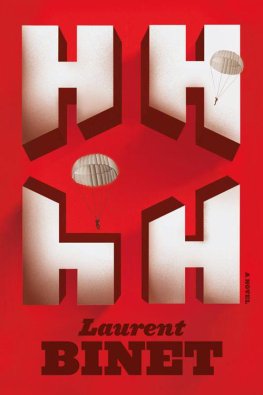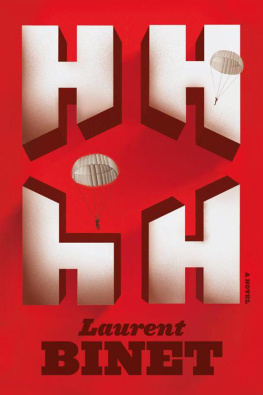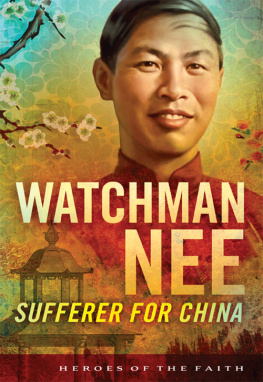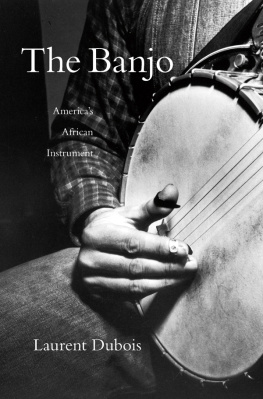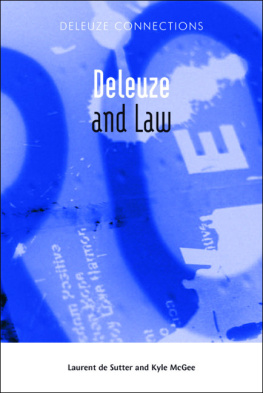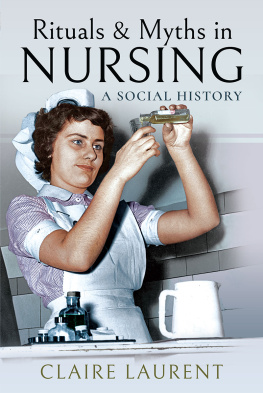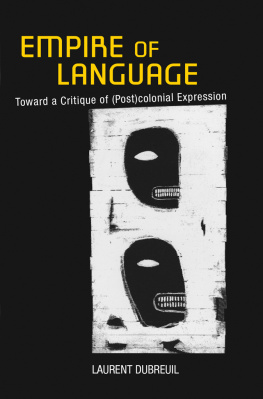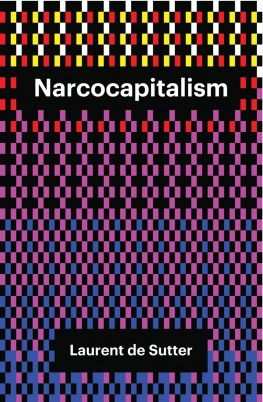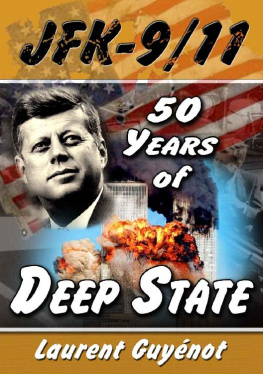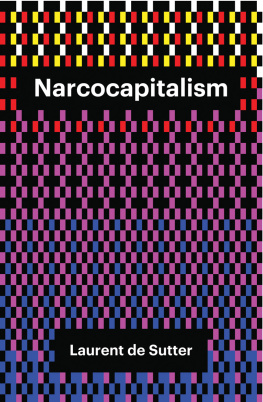Laurent Binet - HHhH
Here you can read online Laurent Binet - HHhH full text of the book (entire story) in english for free. Download pdf and epub, get meaning, cover and reviews about this ebook. City: New York, year: 2012, publisher: Farrar, Straus and Giroux, genre: Prose. Description of the work, (preface) as well as reviews are available. Best literature library LitArk.com created for fans of good reading and offers a wide selection of genres:
Romance novel
Science fiction
Adventure
Detective
Science
History
Home and family
Prose
Art
Politics
Computer
Non-fiction
Religion
Business
Children
Humor
Choose a favorite category and find really read worthwhile books. Enjoy immersion in the world of imagination, feel the emotions of the characters or learn something new for yourself, make an fascinating discovery.
- Book:HHhH
- Author:
- Publisher:Farrar, Straus and Giroux
- Genre:
- Year:2012
- City:New York
- ISBN:978-0-374-16991-6
- Rating:3 / 5
- Favourites:Add to favourites
- Your mark:
- 60
- 1
- 2
- 3
- 4
- 5
HHhH: summary, description and annotation
We offer to read an annotation, description, summary or preface (depends on what the author of the book "HHhH" wrote himself). If you haven't found the necessary information about the book — write in the comments, we will try to find it.
HHhH — read online for free the complete book (whole text) full work
Below is the text of the book, divided by pages. System saving the place of the last page read, allows you to conveniently read the book "HHhH" online for free, without having to search again every time where you left off. Put a bookmark, and you can go to the page where you finished reading at any time.
Font size:
Interval:
Bookmark:
Laurent Binet
HHhH
Translated from the French by Sam Taylor

PART ONE
Once again, the writer stains the tree of History with his thoughts, but it is not for us to find the trick that would enable us to put the animal back in its carrying cage.
OSIP MANDELSTAM, The End of the Novel1
Gabkthats his namereally did exist. Lying alone on a little iron bed, did he hear, from outside, beyond the shutters of a darkened apartment, the unmistakable creaking of the Prague tramways? I want to believe so. I know Prague well, so I can imagine the trams number (but perhaps its changed?), its route, and the place where Gabk waits, thinking and listening. We are at the corner of Vyehradsk and Trojick. The number 18 tram (or the number 22) has stopped in front of the Botanical Gardens. We are, most important, in 1942. In The Book of Laughter and Forgetting, Milan Kundera implies that he feels a bit ashamed at having to name his characters. And although this shame is hardly perceptible in his novels, which are full of Tomes, Tominas, and Terezas, we can intuit the obvious meaning: what could be more vulgar than to arbitrarily givefrom a childish desire for verisimilitude or, at best, mere conveniencean invented name to an invented character? In my opinion, Kundera should have gone further: what could be more vulgar than an invented character?
So, Gabk existed, and it was to this name that he answered (although not always). His story is as true as it is extraordinary. He and his comrades are, in my eyes, the authors of one of the greatest acts of resistance in human history, and without doubt the greatest of the Second World War. For a long time I have wanted to pay tribute to him. For a long time I have seen him, lying in his little roomshutters closed, window openlistening to the creak of the tram (going which way? I dont know) that stops outside the Botanical Gardens. But if I put this image on paper, as Im sneakily doing now, that wont necessarily pay tribute to him. I am reducing this man to the ranks of a vulgar character and his actions to literature: an ignominious transformation, but what else can I do? I dont want to drag this vision around with me all my life without having tried, at least, to give it some substance. I just hope that, however bright and blinding the veneer of fiction that covers this fabulous story, you will still be able to see through it to the historical reality that lies behind.
2
I dont remember exactly when my father first told me this story, but I can see him now, in my public-housing bedroom, pronouncing the words partisans, Czechoslovaks, perhaps operation, certainly assassinate, and then this date: 1942. Id found History of the Gestapo by Jacques Delarue on his bookshelves, and started to read it. Seeing me with this book in my hands, my father had made some passing remarks: hed mentioned Himmler, the leader of the SS, and then his right-hand man, Heydrich, the Protector of Bohemia and Moravia. And hed told me of a Czechoslovak commando sent by London, and an assassination attempt. He didnt know the detailsand I had no reason to ask for them at the time, as this historic event hadnt yet taken hold of my imagination. But I had sensed in him that slight excitement he always gets when recounting something he finds striking. I dont think he was really aware of the importance he gave this anecdote. When I told him recently of my intention to write a book on the subject, all I sensed was polite curiosity without a trace of any particular emotion. But I know that this story has always fascinated him, even if it never made as strong an impression on him as it did on me. So one of the reasons I am embarking on this book is to reciprocate his giftthose few words spoken to an adolescent boy by a father who, at the time, was not yet a history teacher. But who, in a few awkward phrases, knew how to tell it.
The story, I mean. History.
3
When I was still a child, well before the separation of the two countries, I already knew the difference between the Czechs and Slovaks. How? Because of tennis. For example, I knew that Ivan Lendl was Czech while Miroslav Me was Slovak. And if Me the Slovak was a flashier player, more talented and likable than the cold, workmanlike Czech Lendl (who was, all the same, the world number one for 270 weeksa record he held until Pete Sampras topped him, holding the number one spot for 286 weeks), I had also learned from my father that, during the war, the Slovaks had collaborated while the Czechs had resisted. In my childs mind, this meant that all Czechs had been resistance fighters and all Slovaks collaborators, as if by nature. Not for a second did I consider the case of France, which called into question such an oversimplification: hadnt we, the French, both resisted and collaborated? Truth be told, it was only when I learned that Tito was a Croatso not all Croats had been collaborators, and perhaps not all Serbs had been resistance fightersthat I began to have a clearer understanding of Czechoslovakias situation during the war. On one side, there was Bohemia and Moravia (in other words, the current Czech Republic), occupied by the Germans and annexed to the Reichthat is, having the unenviable status of protectorate, and considered part of Greater Germany. On the other side there was the Slovak state, theoretically independent but turned into a satellite by the Nazis. Obviously, this does not presuppose anything about any individual persons behavior.
4
On arriving in Bratislava in 1996, before going to work as a French teacher in a Slovakian military academy, one of the first things I asked the secretary to the military attach at the embassy (after asking for news of my luggage, which had gone missing near Istanbul) concerned the story of the assassination. I learned the first details of the affair from this man: a warrant officer who had specialized in phone-tapping in Czechoslovakia and, since the end of the Cold War, had been redeployed as a diplomat. First of all, there were two men involved in the attack: a Czech and a Slovak. I was pleased to find out that a representative of my host country had taken part in the operationand that there really had been Slovak resistance fighters. I didnt learn much about the operation itself, except that one of the guns had jammed when they shot at Heydrichs car (and I discovered simultaneously that Hedyrich was in a car at that moment). But it was above all what happened afterward that piqued my curiosity: how the two partisans had taken refuge with their friends in a church, and how the Germans had tried to drown them A strange story. I wanted details. But the warrant officer didnt know much more.
5
A little while after arriving in Slovakia, I met a very beautiful young Slovak woman with whom I fell madly in love and went on to have a passionate affair that lasted nearly five years. It was through her that I managed to obtain further information. Firstly, the protagonists names: Jozef Gabk and Jan Kubi. Gabk was the Slovak, and Kubi the Czechapparently you can tell their nationality from their surnames. These two men have become part of the historical landscape: Aurlia, the young woman in question, had learned their names at school, like all the little Czechs and Slovaks of her generation. She knew the broad outline of the story, but not much more than my warrant officer. I had to wait two or three years before I knew for sure what I had always suspectedthat this story was more fantastic and intense than the most improbable fiction. And I discovered that almost by chance.
I had rented an apartment for Aurlia in the center of Prague, between the castle of Vyehrad and Karlovo nmst (Charles Square). From this square runs a street, Resslova ulice, that goes down to the river, where you will find that strange glass building which seems to undulate in the air and which the Czechs call Tanc dm: the dancing house. On Resslova Streeton the right-hand side as you go downthere is a church. And in the churchs wall is a basement window bordered by stone where you can see numerous bullet marks and a plaque mentioning Gabk and Kubiand Heydrich, whose name is now forever linked with theirs. I had passed this basement window dozens of times without noticing either the bullet marks or the plaque. But one day I stopped and read the wordsand realized I had found the church where the parachutists took refuge after the assassination attempt.
Font size:
Interval:
Bookmark:
Similar books «HHhH»
Look at similar books to HHhH. We have selected literature similar in name and meaning in the hope of providing readers with more options to find new, interesting, not yet read works.
Discussion, reviews of the book HHhH and just readers' own opinions. Leave your comments, write what you think about the work, its meaning or the main characters. Specify what exactly you liked and what you didn't like, and why you think so.

